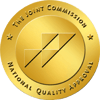Living a sober life means abstaining from the use of alcohol and drugs. It means making conscious choices to prioritize your physical and mental well-being over substance use.
Living sober can bring about positive changes in relationships, career, health, and overall happiness. It allows individuals to take control of their actions and make meaningful connections with others.
However, living sober is not always easy and may require support from loved ones or a community of like-minded individuals. It takes dedication and commitment to maintain sobriety, but the benefits far outweigh the challenges. Living sober can lead to a fulfilling and enriching life full of purpose and joy.

Can you be living sober and occasionally drink?
The answer to this question is not a simple yes or no. It really depends on the individual and their level of addiction. A heavy drinker may be able to occasionally have a drink without relapsing. Can you honestly control and enjoy your drinking at the same time? If you can honestly answer “Yes,” you are likely not an alcoholic. If one finds they cannot control and enjoy their drinking at the same time, they are likely an alcoholic and they should remain abstinent and 100% alcohol free.
When an alcoholic drinks alcohol, it often creates an overwhelming obsession to drink more and if one can’t control that obsession, the decision to drink could be fatal; it’s the first drink that kills the true alcoholic. It is important for those that believe they may be an alcoholic to carefully assess their own individual situation and talk to a medical professional or addiction counselor before deciding whether or not they can handle occasional drinking. Ultimately, it is always safer for problem drinkers to completely abstain from alcohol in order to avoid the risk of relapse.
It is important for individuals in recovery to carefully examine their own relationship with alcohol and make the decision that is best for their personal health and well-being. Many rehabilitation programs offer support and guidance in navigating this decision, including tools and resources and strategies. Ultimately, the most important factor in an alcoholic's recovery process is maintaining sobriety and finding ways to live a fulfilling and healthy life.
Alcoholics should completely abstain from drinking in their recovery process. Heavy drinkers may participate in controlled and supervised drinking as part of a harm reduction approach.
What is a harm reduction strategy?
A harm reduction strategy with alcoholism focuses on reducing the negative consequences and risks associated with alcohol use, rather than focusing on complete abstinence. This can include practices such as providing resources for safe alcohol consumption (such as designated drivers), increasing access to treatment options, and promoting moderation in alcohol consumption. By addressing the harmful effects of alcohol use, rather than simply advocating for complete sobriety, a harm reduction approach can be more inclusive and effective in helping individuals manage their alcohol use.
The argument for complete abstinence
“I sit there and think how it isn't fair that I can't drink at all, even a little. I realize I have crammed an entire lifetime of moderate drinking into a decade of hard-core drinking and that is why. I blew my wad.”
― Augusten Burroughs, Dry: A Memoir
It may seem impossible to imagine never drinking again. By seeking help and attending support groups like Refuge Recovery, Smart recovery, Celebrate Recovery, Alcoholics Anonymous…, individuals can learn to live a fulfilling sober life. It may be difficult at first, but the benefits of sobriety – improved health, relationships, and overall happiness – outweigh any temporary pleasure from alcohol. Remember that you are not alone in your struggle and there is always help available.
In recovery, alcoholics learn to address the underlying issues that drove them to drink in the first place. Drinking alcohol would only serve as a temporary solution and ultimately perpetuate the cycle of addiction. Additionally, alcohol affects the brain's neurotransmitters and can hinder progress in therapy or relapse prevention strategies. Ultimately, abstaining from alcohol allows recovering alcoholics to heal and grow in a healthy and sustainable way.
Many alcoholics have a genetic predisposition towards addiction, meaning that their brains are wired to become dependent on substances like alcohol. This can make it extremely difficult for them to control their consumption and limit themselves to only drinking in moderation.
Genetic predisposition towards addiction
Research has shown that genetic factors play a significant role in an individual's likelihood of developing addiction. In fact, according to one study, genetics account for 40-60% of a person's vulnerability to substance abuse and addiction.
Scientists have identified specific genes that are associated with increased risk for addiction, including those involved in the regulation of dopamine, a neurotransmitter involved in pleasure and reward pathways. Having variations or mutations in these genes can influence how the brain responds to substances and can make an individual more prone to addictive behaviors.
However, it is important to note that genetics alone do not determine one's fate when it comes to addiction. Environmental factors also play a significant role in the development of addiction. It is important for individuals to be aware of their own genetic predisposition towards addiction in order to make informed decisions and seek appropriate help and support if needed.
If you relapse
Relapsing in alcohol use can feel overwhelming and frustrating, especially for those who have worked hard to maintain sobriety. However, it is important to remember that relapse (while not mandatory) is a too common part of the recovery process and should not be seen as a failure.
There are many possible reasons for a relapse, such as not following your daily continuum of care plan, stress, trauma, or not being prepared and finding yourself in environments where alcohol is easily accessible. It is important to identify triggers and develop coping mechanisms to prevent future relapses.
Seeking support from a therapist or support group can also be helpful in managing thoughts and emotions related to relapse and preventing future occurrences. Most importantly, it is important not to give up on recovery and continue working towards living sober.
Remember, relapse might be a part of recovery, and it is never too late to pick yourself up and try again. Living sober is a marathon and not a sprint; don’t let a bump in the road keep you from the finish line.
Soberman's Estate is a residential men's addiction treatment center that provides discreet, individualized, sophisticated recovery and wellness services for adult men that want to recover from substance use disorders, and or other behavioral issues such as trauma, anxiety, depression, stress, or other addictions.





